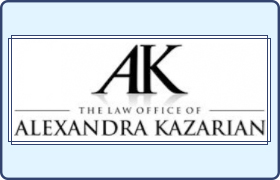Long Beach White Collar Crime Lawyer, California, page 5
Sponsored Law Firm
-
 x
x

Click For More Info:
-
The Law Office of Alexandra Kazarian
15851 Whittier Blvd Whittier, CA 90603» view mapCriminal Law Aggressive & Experienced Criminal Defense
Trust the Law Office of Alexandra Kazarian with your Criminal Defense Case in Whittier & Los Angeles California.
800-773-5851
Stephen Daniel Klarich
Federal Appellate Practice, Family Law, White Collar Crime, Criminal
Status: In Good Standing
Michael Mott Brewer
White Collar Crime, DUI-DWI, Criminal, Administrative Law
Status: In Good Standing
Mark Jacob Werksman
Federal Appellate Practice, Gift Taxation, White Collar Crime, Criminal
Status: In Good Standing Licensed: 39 Years
Yi-Chin Ho
International Trade, Employee Rights, White Collar Crime, Antitrust
Status: In Good Standing Licensed: 25 Years
Jerry Alan Behnke
Litigation, Federal Appellate Practice, White Collar Crime, Criminal
Status: In Good Standing Licensed: 29 Years
Jan Lawrence Handzlik
Grand Jury Proceedings, Federal Trial Practice, White Collar Crime, Criminal, Corporate
Status: In Good Standing Licensed: 54 Years
Adam Frederick Summerfield
Litigation, White Collar Crime, Banking & Finance, Business
Status: In Good Standing Licensed: 16 Years
Sara Azari
White Collar Crime, Criminal, Administrative Law
Status: In Good Standing Licensed: 19 Years
Matthew Stephen Dearmey
Commercial Real Estate, Family Law, White Collar Crime, Criminal
Status: In Good Standing Licensed: 26 Years
Tracy Green
Litigation, Health Care Other, White Collar Crime, Administrative Law
Status: In Good Standing

 Alexandra Kazarian Whittier, CA
Alexandra Kazarian Whittier, CA AboutAlexandra Kazarian Law Firm
AboutAlexandra Kazarian Law Firm Practice AreasExpertise
Practice AreasExpertise
